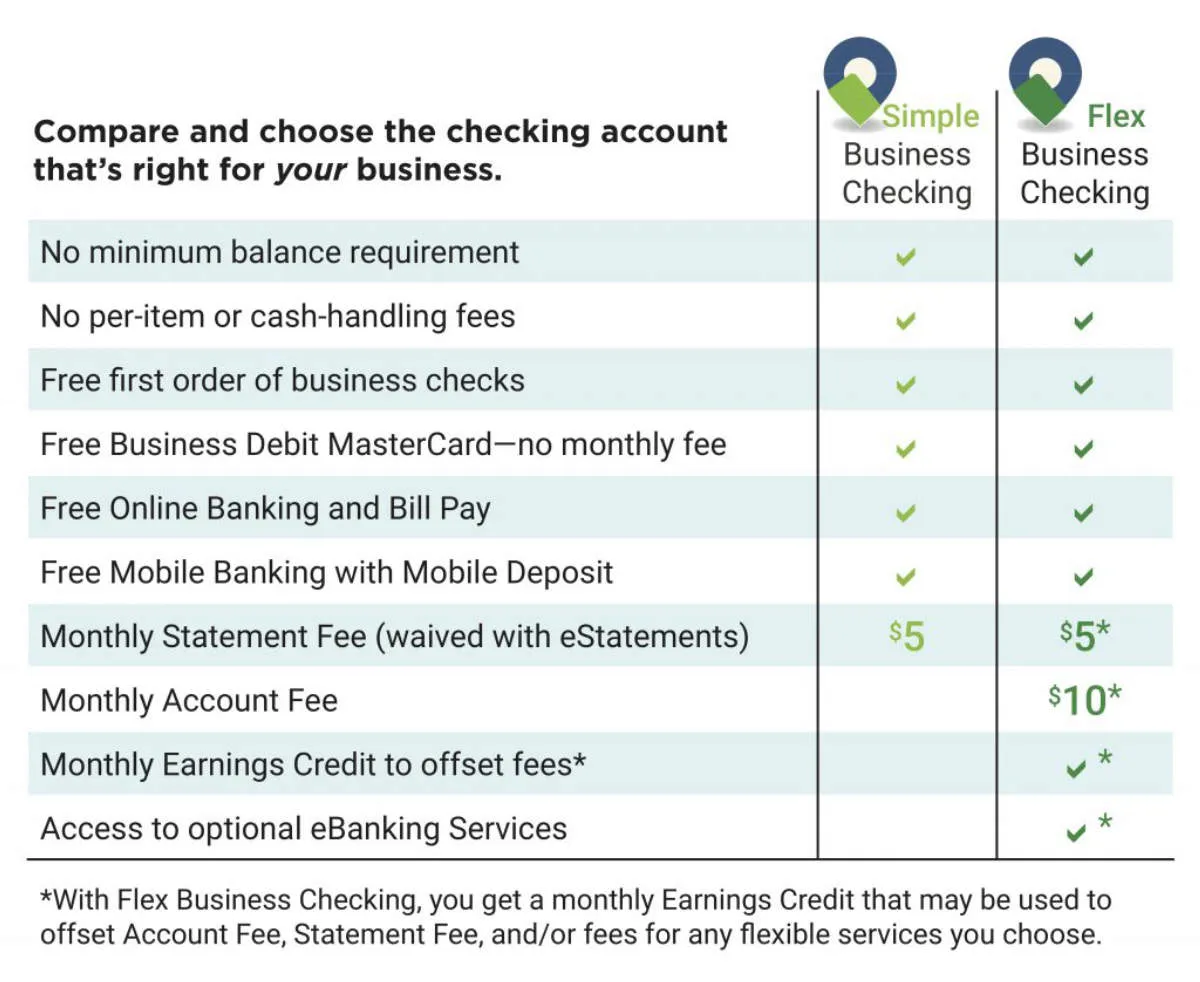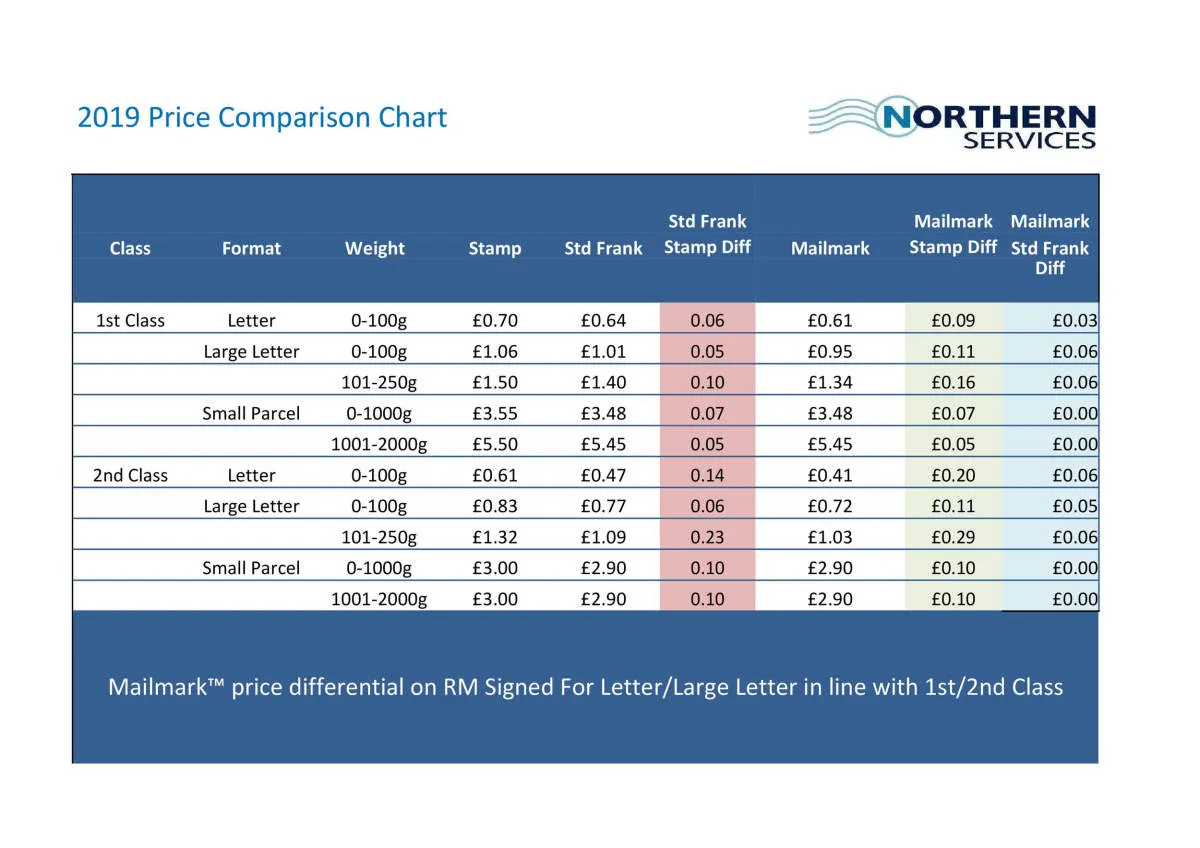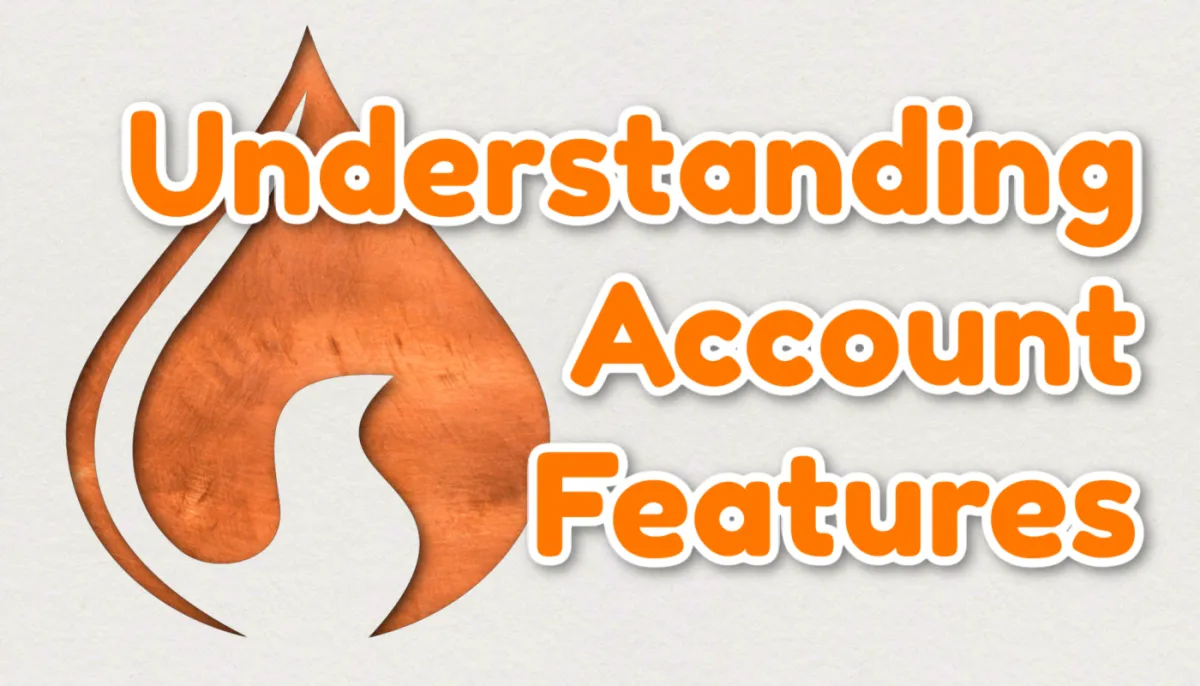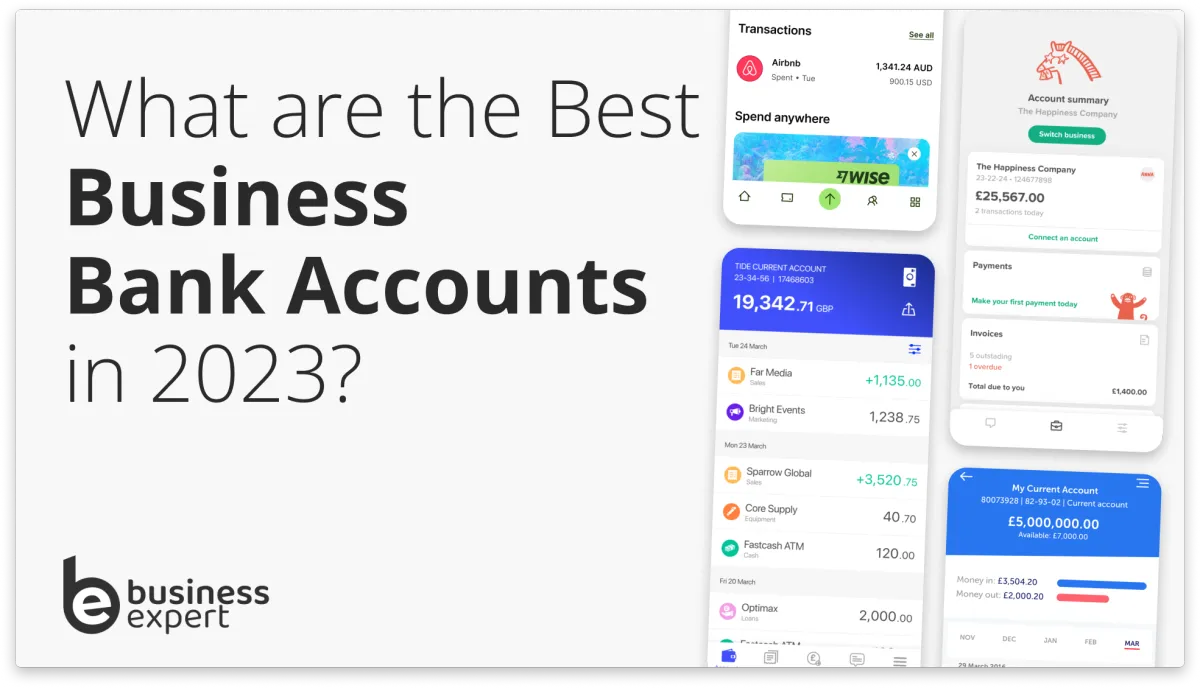Choosing the right bank account for your business is crucial for financial management. Learn how to navigate the options and select the best fit in our guide on How to Choose the Best Bank Account for Your Business.
Understanding Business Bank Accounts

A business bank account is a must-have for any business owner, regardless of size or industry. It helps you manage your finances more effectively, track income and expenses, and simplify tax preparation. But more than that, it separates your personal finances from your business finances, adding a layer of legal protection to your personal assets.
Unlike personal bank accounts, business bank accounts often come with specific features tailored to business needs. These may include:
- Higher transaction limits: Allowing for a larger volume of deposits and withdrawals.
- Merchant services: Enabling you to accept credit card payments from customers.
- Online and mobile banking: Providing convenient access to your accounts and transaction management tools.
- Business debit and credit cards: Offering flexibility and purchasing power for your business expenses.
- Account management tools: Helping you track cash flow, generate financial reports, and manage payroll.
Furthermore, having a separate business bank account can lend professional credibility to your business, especially when dealing with vendors and clients. It shows that you are serious about your business and take financial management seriously.
Different banks offer various types of business bank accounts, each with its own set of features, fees, and minimum balance requirements. Understanding these differences is crucial in choosing the right account that suits your business needs and budget.
Comparing Fees and Interest Rates

When choosing a business bank account, it’s essential to carefully compare fees and interest rates offered by different banks. This can significantly impact your business’s bottom line, especially over the long term.
Here’s what to consider:
Monthly Maintenance Fees
Many banks charge monthly fees for business checking accounts. These fees can vary widely, so compare them across different banks. Some banks may waive the monthly fee if you maintain a minimum balance or meet specific transaction requirements.
Transaction Fees
Banks may charge fees for various transactions, such as exceeding a certain number of monthly transactions, using another bank’s ATM, or making wire transfers. Analyze your business’s typical banking activity and choose an account that aligns with your needs to minimize transaction fees.
Interest Rates
Some business bank accounts offer interest on your balance, though rates are generally lower than those offered on personal savings accounts. Compare interest rates from different banks to maximize your earnings on deposited funds.
Carefully review the fee schedule for each bank account you’re considering. Factor in your business’s banking habits to estimate the potential impact of fees on your finances. Choose an account with transparent fee structures and competitive interest rates to optimize your business banking.
Considering Account Features

Once you have a grasp of the basic account types, delve deeper into the specific features each bank offers. These can significantly impact your day-to-day operations and overall financial health. Here’s what to consider:
Minimum Balance Requirements
Some business bank accounts come with minimum balance requirements. This means you’ll need to maintain a certain amount of money in your account at all times to avoid monthly fees. Consider your typical cash flow and choose an account with a minimum balance requirement that you can comfortably meet.
Transaction Limits
Many banks impose limits on the number of transactions you can make each month, especially with free or low-fee accounts. Think about how many deposits, withdrawals, and transfers you typically make. If your business is transaction-heavy, opt for an account with higher or no transaction limits to avoid excessive fees.
Interest Rates
While not as common for business checking accounts, some banks offer interest-bearing options. Even a small interest rate can add up over time, so it’s worth exploring if your business tends to maintain a healthy balance.
Overdraft Protection
Overdraft protection can be a lifesaver for unexpected expenses. This feature covers transactions even if you don’t have sufficient funds, preventing bounced checks and potential fees. Understand the terms of overdraft protection, as some banks offer linked accounts or lines of credit, while others charge per-use fees.
Integration and Technology
In today’s digital age, seamless banking is essential. Look for features like online and mobile banking, mobile check deposit, and accounting software integration. These tools can save you time and streamline your financial management.
Evaluating Customer Service

When choosing a business bank account, excellent customer service can be a major deciding factor. A bank that’s quick to respond to your questions and concerns can save you time and headaches down the line. Here’s what to consider when evaluating customer service:
Availability and Accessibility:
How easy is it to reach a real person when you need help? Consider:
- Branch Access: If in-person banking is important to you, consider the bank’s branch network and hours of operation.
- Phone Support: Are phone lines adequately staffed? What are the average wait times?
- Online and Mobile Banking Support: Does the bank offer robust online and mobile support features like FAQs, chatbots, or secure messaging?
- Hours of Operation: Are customer service representatives available during hours that are convenient for your business?
Responsiveness and Problem-Solving:
Think about how effectively the bank handles your inquiries and issues:
- Response Times: How quickly does the bank respond to phone calls, emails, or online messages?
- Knowledge and Helpfulness: Are customer service representatives knowledgeable about business banking products and services? Are they able to answer your questions thoroughly and accurately?
- Problem Resolution: How efficiently does the bank resolve issues or disputes? Are they proactive in finding solutions?
Reviews and Reputation:
Research the bank’s reputation for customer service by:
- Reading Online Reviews: Check websites like J.D. Power, the Better Business Bureau, or financial review platforms to gauge customer experiences.
- Asking Other Businesses: Talk to other business owners in your network about their experiences with different banks.
Using Online and Mobile Banking

In today’s digital age, efficient and convenient banking is crucial for businesses of all sizes. Online and mobile banking have revolutionized the way businesses manage their finances, offering a wide range of benefits that streamline operations and save valuable time. When choosing a business bank account, it’s essential to consider the online and mobile banking capabilities offered by each institution.
Key Features to Look For:
- User-friendly Interface: The online and mobile banking platforms should be intuitive and easy to navigate, allowing you to quickly and easily access the features you need.
- Mobile Check Deposit: This convenient feature allows you to deposit checks using your smartphone or tablet, eliminating the need for trips to the bank or ATM.
- Bill Pay: Online and mobile bill pay services make it simple to schedule payments, track payment history, and avoid late fees.
- Account Alerts: Set up customizable alerts to notify you of important account activity, such as low balances, large transactions, or suspicious activity.
- Transaction History and Reporting: Easily access your transaction history and generate reports to track income, expenses, and overall cash flow.
- Mobile Payments and Transfers: Many banks offer mobile payment options like Apple Pay or Google Pay, as well as the ability to transfer funds between accounts or to other individuals.
Benefits of Online and Mobile Banking for Businesses:
The advantages of online and mobile banking extend beyond convenience. These features can significantly benefit your business by:
- Saving Time and Increasing Efficiency: Manage your finances anytime, anywhere, without visiting a branch.
- Improving Cash Flow Management: Real-time account access helps you track balances, monitor transactions, and make informed financial decisions.
- Reducing Banking Fees: Many banks offer lower fees for online and mobile transactions compared to in-person banking.
- Enhancing Security: Online and mobile banking platforms typically employ robust security measures like encryption and multi-factor authentication to protect your financial information.
Visiting Bank Branches

While online banking is convenient for many day-to-day transactions, there’s still value in visiting physical bank branches, especially when choosing a business bank account. Here’s why:
- Personalized Service: Meeting face-to-face with a business banking representative allows you to discuss your specific needs and ask questions directly. They can provide tailored advice and recommend the best account options based on your business type, transaction volume, and future plans.
- Building Relationships: Establishing a personal relationship with your banker can be invaluable as your business grows. They can assist with loans, lines of credit, and other financial services that might be harder to secure online.
- Resolving Issues: While hopefully rare, complex issues or concerns may be better addressed in person at a branch. You can have a dedicated representative work with you to find solutions efficiently.
- Access to Additional Services: Bank branches often offer additional services not readily available online, such as safe deposit boxes for important documents or notary services.
- Assessing Branch Convenience: Visiting a branch lets you assess factors like location, operating hours, parking availability, and overall atmosphere, which can be crucial for your business’s day-to-day banking needs.
Tip: When visiting, come prepared with questions about account fees, minimum balances, transaction limits, and any specific features important for your business.
Reading Reviews and Recommendations

Once you’ve narrowed down your options based on your specific business needs and the factors outlined previously, it’s time to see what other business owners have to say. Reading reviews and recommendations can provide valuable insights into the real-life experiences of using different banks and their business accounts.
Where to Find Reviews:
- Online Review Platforms: Websites like Trustpilot, Yelp, and Google Reviews often feature reviews of banks from business owners.
- Business Forums and Communities: Online forums dedicated to small businesses or specific industries often have discussions about banking options.
- Financial Websites and Publications: Many reputable financial websites and magazines publish articles and rankings of the best business bank accounts.
What to Look for in Reviews:
- Customer Service: Pay attention to comments about the bank’s responsiveness, helpfulness, and overall customer service quality.
- Account Features and Functionality: See if reviewers mention any positive or negative experiences with specific account features, such as mobile banking, online bill pay, or integration with accounting software.
- Fees and Charges: Look for comments about hidden fees, unexpected charges, or the transparency of fee structures.
- Problem Resolution: Find out how the bank handles issues or disputes and if reviewers were satisfied with the resolution process.
Considering Bank Accessibility

When choosing a business bank account, accessibility is key. You need an account that aligns with how and where you do business. Here are some key factors to consider:
Branch and ATM Network
If you frequently make cash deposits or need to interact with bankers face-to-face, consider the bank’s branch network. A bank with a strong local presence is ideal if you prefer in-person banking.
Similarly, evaluate the ATM network, especially if your business handles a lot of cash. Easy access to ATMs without hefty fees can save you money and hassle.
Online and Mobile Banking Features
In today’s digital age, robust online and mobile banking is essential for managing your business finances efficiently. Look for features such as:
- Mobile check deposit
- Online bill pay
- Funds transfers
- Account balance and transaction history
- Real-time alerts and notifications
Customer Support
Evaluate the bank’s customer service channels and availability. Can you easily reach a representative by phone, email, or live chat during business hours? Prompt and helpful customer support can be invaluable when you encounter issues or have urgent questions.
Understanding Security Features
Security should be a top priority when choosing a business bank account. You’re entrusting the bank with your business’s financial well-being, so it’s crucial to understand the security measures in place to protect your funds and information.
Here are some key security features to look for:
- FDIC Insurance: Ensure the bank is FDIC-insured, which protects your deposits up to $250,000 in case of bank failure.
- Two-Factor Authentication: This adds an extra layer of security by requiring two forms of identification, such as a password and a unique code sent to your phone.
- Fraud Monitoring and Alerts: The bank should have systems in place to detect and prevent fraudulent activity on your account. Look for options to set up alerts for transactions, balance changes, or suspicious activity.
- Strong Password Requirements: The bank should enforce strong password policies, requiring a combination of upper and lowercase letters, numbers, and special characters.
- Secure Website and Mobile App: Check for a secure website address (https://) and a well-rated mobile app with strong security protocols.
In addition to these features, it’s important to practice good security hygiene yourself. This includes creating strong passwords, being cautious about phishing scams, and regularly monitoring your account for any suspicious activity.
Choosing the Right Bank for Your Business
Once you have a good grasp of the different business bank accounts available, it’s time to choose the right bank for your needs. This involves more than just comparing account fees. Consider these factors:
Bank Size and Focus
Do you prefer a large, national bank, a smaller, local institution, or a credit union? Each has pros and cons:
- Large banks often offer a wider range of products and services, as well as greater convenience with branches and ATMs across a wider geographical area. However, they may also have more rigid procedures and less personalized service.
- Smaller banks might provide a more personal touch and potentially better terms for loans and other financial products. However, their branch and ATM networks might be more limited.
- Credit unions are member-owned and typically offer competitive rates and lower fees than traditional banks. However, their eligibility requirements might be stricter, and their range of services may be narrower.
Business Banking Features and Services
Different banks cater to different business needs. Carefully evaluate your specific requirements, such as:
- Industry specialization: Some banks cater to specific industries like healthcare or technology. Choosing a bank familiar with your industry can bring valuable insights and tailored solutions.
- Online and mobile banking: In today’s digital age, convenient and robust online and mobile banking platforms are crucial for managing finances on the go.
- Merchant services: If your business accepts credit card payments, explore the bank’s merchant services offerings, including processing rates and equipment options.
- Loan options and lines of credit: Consider future financing needs and compare the bank’s loan products, interest rates, and borrowing terms.
- International banking services: If your business operates globally, assess the bank’s international transaction fees, currency exchange rates, and support for international wire transfers.
Conclusion
Choosing the right bank account for your business is crucial. Consider fees, features, and services offered by different banks to ensure you find the best fit for your business needs.

